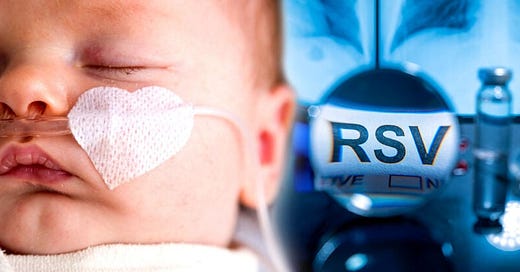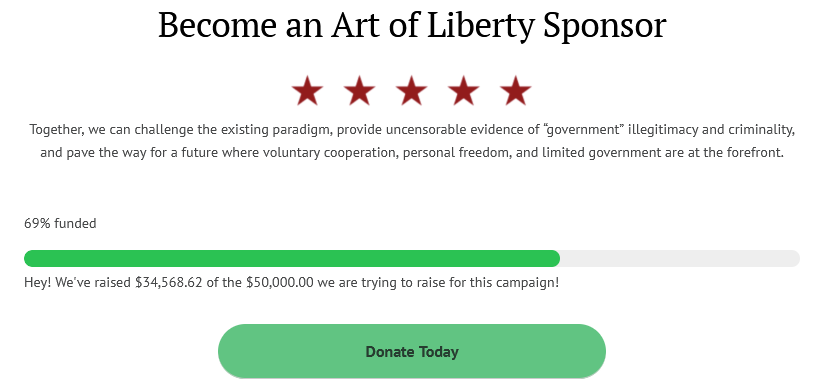French Researchers Identify ‘Improbably High Rate of Deaths’ in Newborns Who Received New RSV Shot
Independent French researchers discovered a significant increase in newborn deaths in France coinciding with the rollout of Beyfortus, a new respiratory syncytial virus shot for infants.
French researchers identified possible safety signals in babies coinciding with the rollout of Beyfortus, a recently approved monoclonal antibody treatment for respiratory syncytial virus (RSV) in newborns.
The discovery comes as public health authorities ramp up warnings about the spread of respiratory viruses and step up their promotion of the drug.
In interviews with The Defender, the researchers — French independent scientist and author Hélène Banoun, Ph.D., and French statistician Christine Mackoi — explained that data from France’s National Institute of Statistics and Economic Studies (INSEE) indicates an improbably high rate of deaths of babies between 2 and 6 days old in France during September and October 2023.
INSEE is the authority that compiles official birth and death data in France.
This increase, the researchers said, coincides with the introduction of Beyfortus in French hospitals, which began on Sept. 15, 2023. In an interview with cardiologist Peter McCullough, M.D., MPH, Banoun said that over 200,000 newborn babies in France have been injected with Beyfortus since that date.
The Centers for Disease Control and Prevention (CDC) recommended Beyfortus in August 2023, while the European Medicines Agency (EMA) authorized the drug in September 2022.
Beyfortus was developed jointly by AstraZeneca and Sanofi.
The drug is offered as a “one-time shot for infants born just before or during the RSV season and for those less than 8 months old before the season starts,” and for some high-risk 8- to 19-month-old infants.
According to The Associated Press, “In the U.S., about 58,000 children younger than 5 are hospitalized for RSV each year and several hundred die.” CNBC reported that “RSV is the leading cause of hospitalization among infants in the U.S.” According to the CDC, nearly all children are infected with RSV before the age of 2.
But the French researchers and other medical experts who spoke with The Defender warned that no long-term studies have been conducted involving Beyfortus and newborns and that the administration of monoclonal antibodies on this population is unprecedented. They also pointed to data indicating RSV’s low risk to babies.
Dr. Meryl Nass, an internist, biological warfare epidemiologist and member of the Children’s Health Defense (CHD) scientific advisory committee, told The Defender, “Giving newborns any drug or biologic should be done with extreme caution, let alone a novel, injected monoclonal antibody. You cannot tell if the infant is damaged by the shot, when you don’t yet know how healthy the newborn is and how it normally behaves. This should be a huge red flag for manufacturers as well as parents.”
According to Banoun, “The French government is recommending that Beyfortus be injected into newborns before they leave the maternity ward, from Sept. 15, 2023, even though the product has not been tested on this age group,” Banoun said.
Nass pointed out that the CDC published a paper in 2021 on all U.S. RSV deaths over the preceding 12 years. The CDC reviewed death certificates, and found there were only 26 deaths per year with RSV, and only 17 deaths per year in the entire U.S. caused by RSV in babies under one year old.
According to McCullough, “Among the 22.4 million children under age 5 years, the annual risk of RSV hospitalization is well under 1%.”
French researchers identified possible safety signals in babies coinciding with the rollout of Beyfortus, a recently approved monoclonal antibody treatment for respiratory syncytial virus (RSV) in newborns.
The discovery comes as public health authorities ramp up warnings about the spread of respiratory viruses and step up their promotion of the drug.
In interviews with The Defender, the researchers — French independent scientist and author Hélène Banoun, Ph.D., and French statistician Christine Mackoi — explained that data from France’s National Institute of Statistics and Economic Studies (INSEE) indicates an improbably high rate of deaths of babies between 2 and 6 days old in France during September and October 2023.
INSEE is the authority that compiles official birth and death data in France.
This increase, the researchers said, coincides with the introduction of Beyfortus in French hospitals, which began on Sept. 15, 2023. In an interview with cardiologist Peter McCullough, M.D., MPH, Banoun said that over 200,000 newborn babies in France have been injected with Beyfortus since that date.
The Centers for Disease Control and Prevention (CDC) recommended Beyfortus in August 2023, while the European Medicines Agency (EMA) authorized the drug in September 2022.
Beyfortus was developed jointly by AstraZeneca and Sanofi.
The drug is offered as a “one-time shot for infants born just before or during the RSV season and for those less than 8 months old before the season starts,” and for some high-risk 8- to 19-month-old infants.
According to The Associated Press, “In the U.S., about 58,000 children younger than 5 are hospitalized for RSV each year and several hundred die.” CNBC reported that “RSV is the leading cause of hospitalization among infants in the U.S.” According to the CDC, nearly all children are infected with RSV before the age of 2.
But the French researchers and other medical experts who spoke with The Defender warned that no long-term studies have been conducted involving Beyfortus and newborns and that the administration of monoclonal antibodies on this population is unprecedented. They also pointed to data indicating RSV’s low risk to babies.
Dr. Meryl Nass, an internist, biological warfare epidemiologist and member of the Children’s Health Defense (CHD) scientific advisory committee, told The Defender, “Giving newborns any drug or biologic should be done with extreme caution, let alone a novel, injected monoclonal antibody. You cannot tell if the infant is damaged by the shot, when you don’t yet know how healthy the newborn is and how it normally behaves. This should be a huge red flag for manufacturers as well as parents.”
According to Banoun, “The French government is recommending that Beyfortus be injected into newborns before they leave the maternity ward, from Sept. 15, 2023, even though the product has not been tested on this age group,” Banoun said.
Nass pointed out that the CDC published a paper in 2021 on all U.S. RSV deaths over the preceding 12 years. The CDC reviewed death certificates, and found there were only 26 deaths per year with RSV, and only 17 deaths per year in the entire U.S. caused by RSV in babies under one year old.
According to McCullough, “Among the 22.4 million children under age 5 years, the annual risk of RSV hospitalization is well under 1%.”
THANK YOU! to Everyone Who Contributed to our 1st Ever Fundraiser for the Art of Liberty Foundation! As of January 2nd we have raised $34,568 or 69% of our $50,000 goal! Donations are still coming in via postal mail and the internet so we will announce the final total next week BUT I wanted to thank everyone who contributed and/or went “Paid” on Substack. We simply couldn’t do this work without the folks who support us financially! It is so very much appreciated!! Happy New Year to All!! - Etienne






